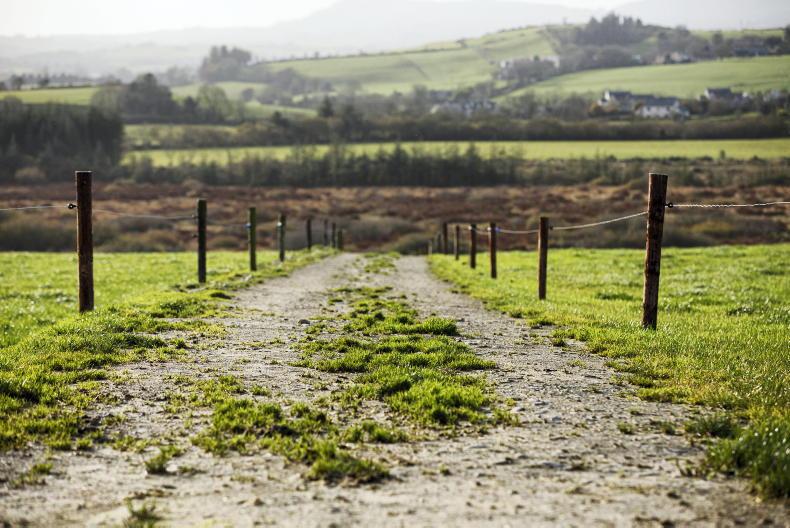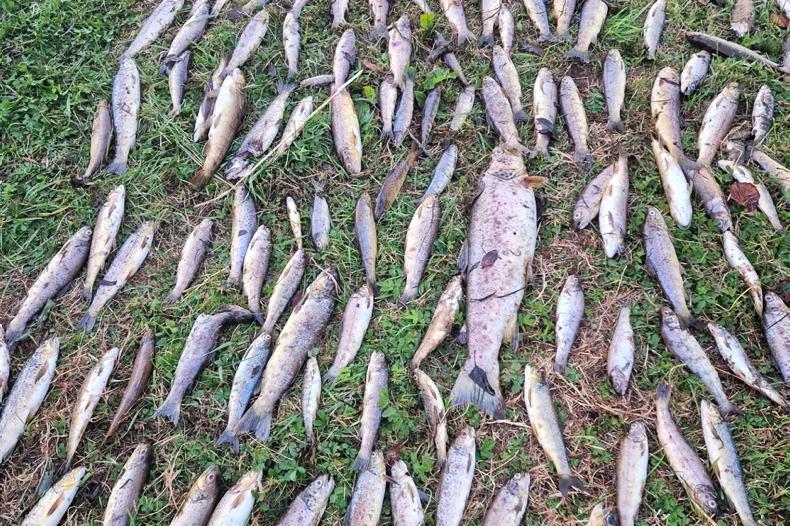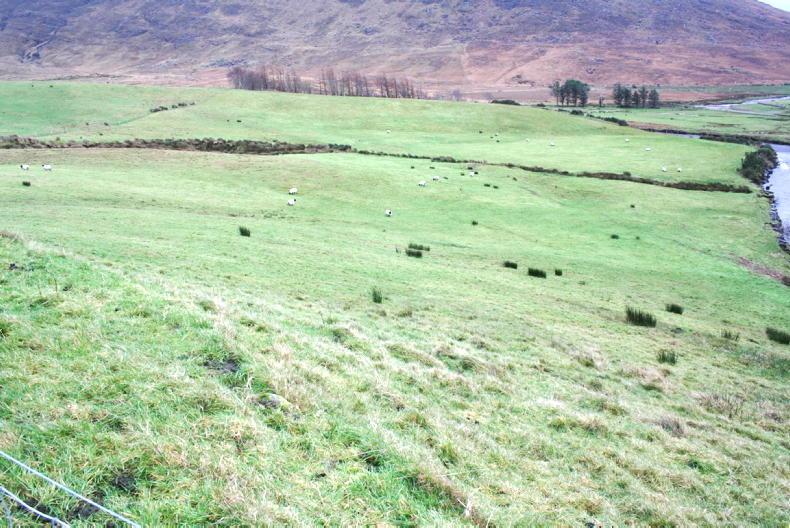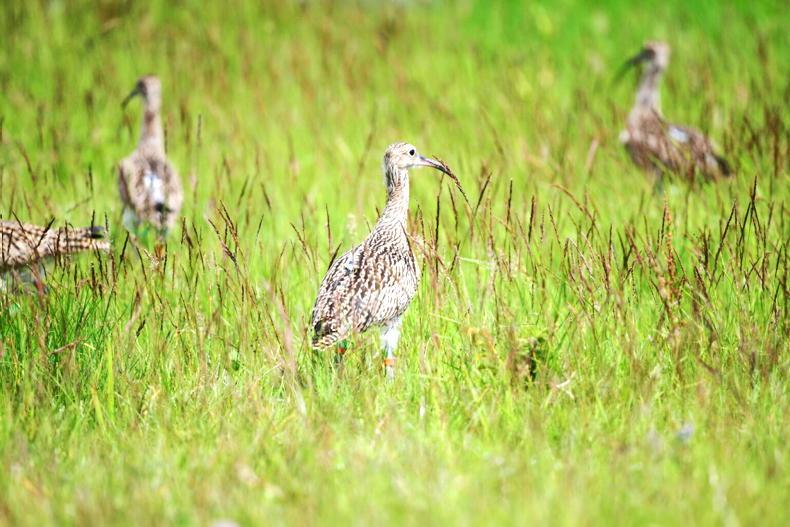2023 saw intense debate on the EU legislation which will be used to guide the farming sector towards targets set out in the green deal and Farm to Fork strategies.
These strategies set out the targets that are to be achieved, such as restoring all of the EU’s degraded ecosystems by 2050 and halving pesticide use by 2030, but contained little detail of how progress would be assessed.
They also failed to state exactly how targets would be divided between member states and what funding will back environmental action.
To beef up EU policy to the point where these targets could be achieved, the European Commission brought forward new regulations and proposed updates to existing ones.
Many of these will or would have impacted greatly on farmers.
Nature restoration compromise
The controversial nature restoration law dominated headlines when the EPP declared that it would seek to vote the proposals down in the European Parliament.
The nature restoration law was approved by European Parliament on a knife-edge, in a vote which saw all 13 Irish MEPs backing a more flexible version of the law than had been initially proposed.
The Irish Government defended its support of the nature restoration law by arguing that State lands, such as former Bord na Móna peat extraction sites, can be used fill the bulk of Ireland’s rewetting targets.
However, this agreement allowed for countries particularly impacted by peatland rewetting, such as Ireland, to seek lower targets than other member states.
Agreement
Agreement was reached between the Parliament and member states, which will seek to put restoration measures in place across 90% of degraded habitats by 2050, 20% of which will need to be in place by 2030.
Half of the drained peatlands under agricultural use will have to be restored by 2050, with intermediate targets to be reached before then.
This agreement requires just one more vote of approval from MEPs to become EU law, which must be put into practice in Ireland.
Once formally approved, Ireland will have to draft a nature restoration plan detailing which measures it will implement to achieve its legal targets, as well as outlining where and when they will be carried out.
No EU funding source has yet been announced to fund nature restoration, but Ireland has plans to establish a €14bn infrastructure, climate and nature fund which could be used to finance measures.
Family farms v industrial facilities
On the industrial emissions directive, the Commission initially proposed that all dairy and beef farms with more than 150 livestock units would be classed as an industrial site and would require an environmental permit to operate.
Permits under the industrial emissions directive must outline which measures a farmer will implement to reduce emissions and pollution.

Cattle farms are to be excluded from the industrial emissions directive, for now. / Donal O'Leary
The European Parliament voted for cattle to be excluded entirely from the permitting regime, as things currently stand with the directive, and MEPs’ position was successfully upheld in trilogue negotiations which concluded at the end of November.
However, the Commission is to bring forward its plans for dealing with emissions of carbon, methane and ammonia from cattle farms by 2025.
Pesticide plans shot down
The future of the proposed sustainable use of pesticides regulation remains uncertain after the European Parliament voted to scrap the law entirely.
The European Commission had proposed the regulation as a replacement to the sustainable use directive currently in play.
The proposed regulation would have seen legally-binding pesticide reduction targets placed on each member state as a means of halving pesticide use across the EU by 2030.
Soil monitoring law
After the opposition faced when getting the nature restoration law through Parliament, the Commission unveiled a soil monitoring law, but left out the need for legally-binding targets to be included, opting instead for a voluntary approach to setting targets.
However, a report from the environment committee in the European parliament suggests that some MEPs may look for legally-binding targets for each member state concerning soil health.
The proposals will be debated further in 2024.
Read more
Commission looks to reset relations with farmers
Commissioner defends trade deals with EU output to fall
2023 saw intense debate on the EU legislation which will be used to guide the farming sector towards targets set out in the green deal and Farm to Fork strategies.
These strategies set out the targets that are to be achieved, such as restoring all of the EU’s degraded ecosystems by 2050 and halving pesticide use by 2030, but contained little detail of how progress would be assessed.
They also failed to state exactly how targets would be divided between member states and what funding will back environmental action.
To beef up EU policy to the point where these targets could be achieved, the European Commission brought forward new regulations and proposed updates to existing ones.
Many of these will or would have impacted greatly on farmers.
Nature restoration compromise
The controversial nature restoration law dominated headlines when the EPP declared that it would seek to vote the proposals down in the European Parliament.
The nature restoration law was approved by European Parliament on a knife-edge, in a vote which saw all 13 Irish MEPs backing a more flexible version of the law than had been initially proposed.
The Irish Government defended its support of the nature restoration law by arguing that State lands, such as former Bord na Móna peat extraction sites, can be used fill the bulk of Ireland’s rewetting targets.
However, this agreement allowed for countries particularly impacted by peatland rewetting, such as Ireland, to seek lower targets than other member states.
Agreement
Agreement was reached between the Parliament and member states, which will seek to put restoration measures in place across 90% of degraded habitats by 2050, 20% of which will need to be in place by 2030.
Half of the drained peatlands under agricultural use will have to be restored by 2050, with intermediate targets to be reached before then.
This agreement requires just one more vote of approval from MEPs to become EU law, which must be put into practice in Ireland.
Once formally approved, Ireland will have to draft a nature restoration plan detailing which measures it will implement to achieve its legal targets, as well as outlining where and when they will be carried out.
No EU funding source has yet been announced to fund nature restoration, but Ireland has plans to establish a €14bn infrastructure, climate and nature fund which could be used to finance measures.
Family farms v industrial facilities
On the industrial emissions directive, the Commission initially proposed that all dairy and beef farms with more than 150 livestock units would be classed as an industrial site and would require an environmental permit to operate.
Permits under the industrial emissions directive must outline which measures a farmer will implement to reduce emissions and pollution.

Cattle farms are to be excluded from the industrial emissions directive, for now. / Donal O'Leary
The European Parliament voted for cattle to be excluded entirely from the permitting regime, as things currently stand with the directive, and MEPs’ position was successfully upheld in trilogue negotiations which concluded at the end of November.
However, the Commission is to bring forward its plans for dealing with emissions of carbon, methane and ammonia from cattle farms by 2025.
Pesticide plans shot down
The future of the proposed sustainable use of pesticides regulation remains uncertain after the European Parliament voted to scrap the law entirely.
The European Commission had proposed the regulation as a replacement to the sustainable use directive currently in play.
The proposed regulation would have seen legally-binding pesticide reduction targets placed on each member state as a means of halving pesticide use across the EU by 2030.
Soil monitoring law
After the opposition faced when getting the nature restoration law through Parliament, the Commission unveiled a soil monitoring law, but left out the need for legally-binding targets to be included, opting instead for a voluntary approach to setting targets.
However, a report from the environment committee in the European parliament suggests that some MEPs may look for legally-binding targets for each member state concerning soil health.
The proposals will be debated further in 2024.
Read more
Commission looks to reset relations with farmers
Commissioner defends trade deals with EU output to fall










SHARING OPTIONS